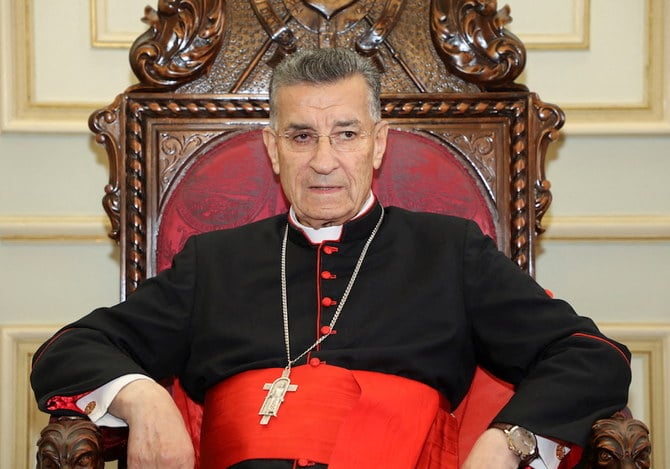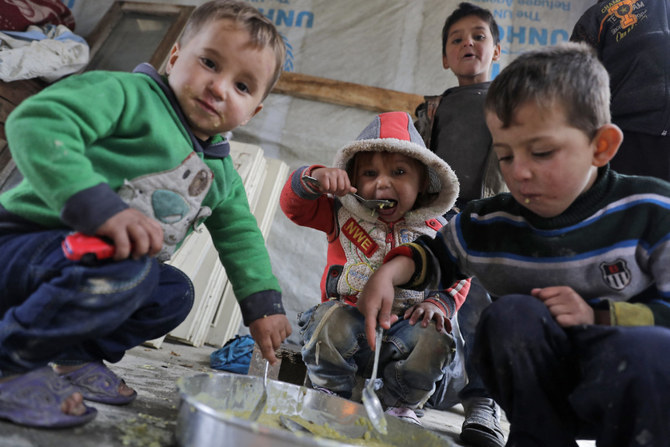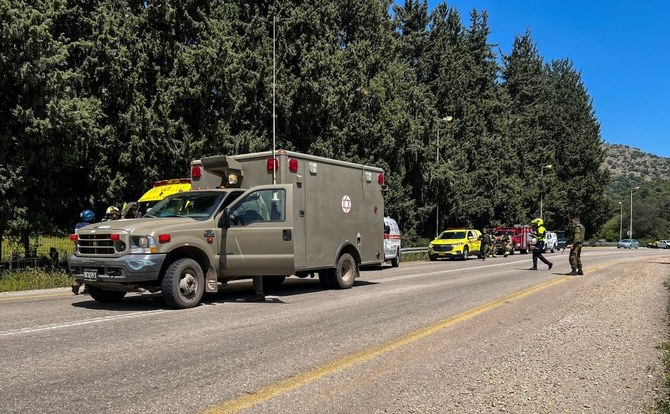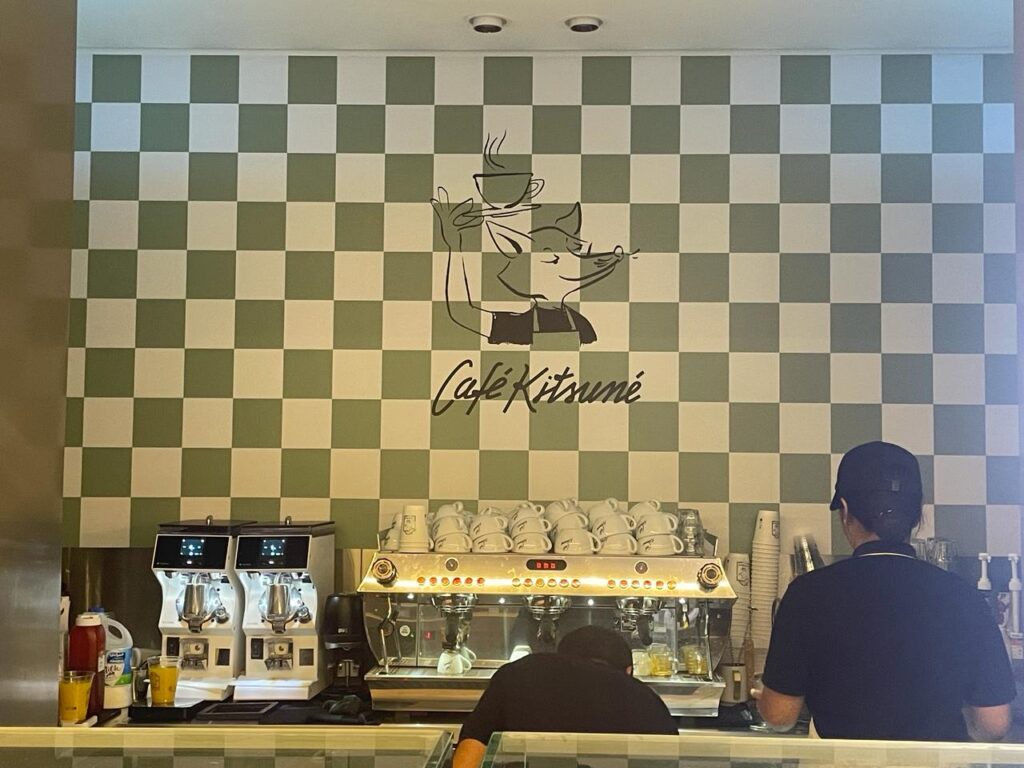Najia Houssari
BEIRUT: Maronite Patriarch Bechara Boutros Al-Rahi has accused Lebanese MPs of trying to lead the country into a presidential vacuum.
Parliament is set to hold its fourth session to elect a new leader on Monday, as President Michel Aoun’s term ends on Oct. 31.
Addressing the Lebanese ruling class in his Sunday sermon, Al-Rahi said: “We have reached the height of political corruption, which is even worse than financial corruption.”
He said that during recent parliamentary sessions, some MPs had acted “as if they were in a play, instead of presenting our crises-hit Lebanon with a president who would be accepted by the Lebanese people and act as a true statesman, instead of a politician who is concerned with his own interests at the expense of the public good.”
He continued: “Is there higher treason toward the homeland than disrupting the election of a new president? Is there a better way to create more division than leading the country into a presidential vacuum?
“Is this how you respond to the statement issued by the International Support Group for Lebanon, calling on electing a president within the constitutional deadline who would assume his responsibilities at home and abroad in the current circumstances?”
Al-Rahi’s remarks came as Lebanon flounders with an economic crisis that has damaged infrastructure and caused social and health crises.
The latest challenge is a cholera outbreak in the Bekaa, the north and south, as water refining plants are no longer operating due to the public electricity network being out of service for more than two days. The power outage has also disrupted services at Beirut Airport and Beirut Port.
Caretaker Minister of Public Works Ali Hamiyeh said the airport had become dependent on three private generators.
“The cost of buying diesel for the generators is very high and we cannot guarantee that the airport can continue operating this way,” he said.
“We will discuss this issue with caretaker Prime Minister Najib Mikati and caretaker Energy Minister Walid Fayyad to find a solution.”
The airport relies on Middle East Airlines to supply it with diesel for the generators, but the carrier has expressed its inability to continue to help indefinitely due to the high costs involved.
Meanwhile, US mediator Amos Hochstein is expected to arrive in Beirut this week with the text of the official US agreement to demarcate the maritime borders between Lebanon and Israel.
On Sunday, Israel’s Supreme Court rejected all petitions against the deal, which paves the way for the Israeli Cabinet to approve it within the week.
Israeli Defense Minister Benny Gantz said the court’s decision “will allow us to move forward with the important agreement on the maritime border with Lebanon in the coming days.”
The UN Interim Force in Lebanon command in Naqoura is preparing to host the signing ceremony and Aoun is expected on Tuesday to name the official who will represent Lebanon at the event.
Lebanon and Israel are scheduled to send two separate letters to the UN about the terms of the understanding to ensure that no violations occur and to fix the coordinates of the maritime borders.
Meanwhile, a Cypriot delegation will arrive in Lebanon on Monday to discuss the demarcation of the borders between their two countries.
The delegation is expected to meet with Deputy Parliament Speaker Elias Bou Saab, caretaker Foreign Minister Abdullah Bou Habib and Fayyad.
The Lebanese Ministry of Foreign Affairs earlier received a letter from the Cypriot government calling for dialogue to “correct the maritime border points and coordinates between Lebanon and Cyprus in light of the Lebanese-Israeli maritime border demarcation agreement, before reestablishing them with the UN.”
Lebanon began demarcating its borders with Cyprus through negotiations between 2007 and 2009. But Cyprus violated the understanding with Lebanon in 2011 and demarcated its borders with Israel.
The agreement between Lebanon and Cyprus stipulated that the latter could not complete the demarcation with Israel without an understanding with Lebanon.
Meanwhile, Aoun instructed Bou Saab to head a delegation to Damascus to discuss the maritime border demarcation with Syria. The delegation includes Bou Habib, Hamiyeh and Maj. Gen. Abbas Ibrahim, director general of Lebanon’s General Security.
Aoun is reported to have contacted his Syrian counterpart Bashar Al-Assad a few days ago to discuss demarcating the borders.
The two agreed for official delegations to hold meetings in Beirut and Damascus as the points of conflict require direct technical and legal discussion, and there is no need for a mediator.
It remains unknown whether the Lebanese delegation will bring up the issue of Shebaa Farms, which Lebanon claims but UN maps suggest belongs to Syria.






















